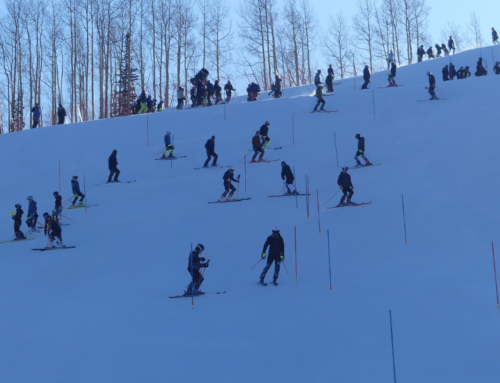TORINO: Hemoglobin counts leave 4 more XC skiers out in the cold
TORINO: Hemoglobin counts leave 4 more XC skiers out in the cold{mosimage}PRAGELATO, Italy – Four more cross-country skiers received five-day suspensions Friday for testing positive for high levels of hemoglobin in their blood, bringing the total to 12 in two days.
The four join eight others – including a former gold medalist from Germany – in being suspended even before the Games had officially began.
There is no proof that the athletes did anything wrong: elevated hemoglobin can be caused by simple dehydration or the body’s acclimation to mountain air. But the test result raises the possibility of blood doping with synthetic hemoglobin or transfusions to increase the oxygen in the muscles.
The International Ski Federation said Alen Abramovic of Croatia, Russians Pavel Korosteljev and Nikolai Pankratov, and Robel Teklemariam of Ethiopia had elevated levels of hemoglobin, the red blood cells that can increase endurance.
The tests were conducted by the FIS, which said the suspensions were not disciplinary, but to ”protect the health of the athlete.”
Athletes who fail blood tests are retested five days later. The eight suspended late Thursday are scheduled for new tests Monday. It was not immediately clear when the latest four failed their tests.
”We are confident that five days is a sufficient time to allow for the blood values to normalize if they are the result of living at a high altitude or dehydration,” said Bengt Saltin, chairman of the FIS medical committee. ”However, a five-day period is not sufficient to remove the impact of EPO (erythropoietin) or blood transfusion.”
The skiers already suspended were Kikkan Randall and Leif Zimmermann of the United States; Sean Crooks of Canada; Sergey Dolidovich of Belarus; Jean Marc Gaillard of France; Aleksandr Lasutkin of Belarus; Natalia Matveeva of Russia; and Evi Sachenbacher Stehle of Germany – the winner of gold and silver medals four years ago.
Also Friday, Zach Lund, the top slider on the U.S. skeleton team, was banned from the Olympics for taking a common hair-restoration pill that can be used to mask steroids.
Sachenbacher Stehle broke down in tears after professing her innocence and explaining to reporters how she always drinks plenty of fluids when competing and training.
She said she needs to drink more water in the coming days to lower her levels before being retested.
”At home, I drink a lot and I never did anything to be guilty. I am the last person to do something like this,” said Sachenbacher Stehle, the silver medalist in sprint at the last Olympics and currently ranked seventh in the overall World Cup standings.
International Olympic Committee president Jacques Rogge said the suspensions ”were not doping tests.”
”They will have to wait five more days until their blood parameters go down,” Rogge said.
Nobody seems too concerned about it, with various officials using the word ”routine” to describe the action taken by the International Ski Federation. Hemoglobin levels can rise from dehydration or changes the body goes through adjusting to altitude.
”It’s a health and safety issue, and that’s why it’s there,” U.S. Ski Team spokesman Tom Kelly said of the suspensions.
Kelly said team officials don’t believe Randall or Zimmermann did anything wrong. He said neither will miss their events because they weren’t scheduled to ski Sunday in the men’s and women’s pursuit.
The failed tests do raise concern about whether any of the athletes were blood doping with synthetic hemoglobin or transfusions to increase the oxygen in the muscles.
The IOC plans to administer close to 1,200 drug tests during the Olympics. The FIS sampled 224 athletes over two days this week.
”Elevated hemoglobin levels can be a natural response to changes in elevation and dehydration,” Dr. Jim Sterling, chief medical officer for the U.S. Olympic Team, said in a statement. ”The athletes had traveled to Turin just 36 hours prior to the testing.”
In the 2002 Games in Salt Lake City, Russian star Larissa Lazutina was disqualified for having high levels of performance-boosting hemoglobin, keeping the Russian team out of the 20-kilometer relay.
Sachenbacher Stehle and her German teammates then edged the Norwegians for the gold medal.
Lazutina later was stripped of the gold medal she won in the 30-kilometer classic race after she tested positive for darbepoetin. Spain’s Johann Muehlegg also tested high for hemoglobin in 2002 and lost his gold medal in the 50-kilometer classical race after also testing positive for darbepoetin.
German team doctor Ernst Jakob said Sachenbacher Stehle’s suspension was unnecessary because she has a naturally high hemoglobin level, which posed no danger to her.
”This is normal when she is training a long time at altitude,” German coach Jochen Behle said.
The Germans are planning to take action with the ad-hoc committee that handles international disputes in sports. After the blood test, Sachenbacher Stehle was given no reason to be concerned and allowed to leave without further tests, such as providing a urine sample.
German officials said they told FIS in August that Sachenbacher Stehle has naturally high hemoglobin levels and requested an exemption for her hemoglobin number.
”Our lawyers are looking at it. We’ll see if anything can be done,” German Olympic committee spokesman Michael Schirp said.





















